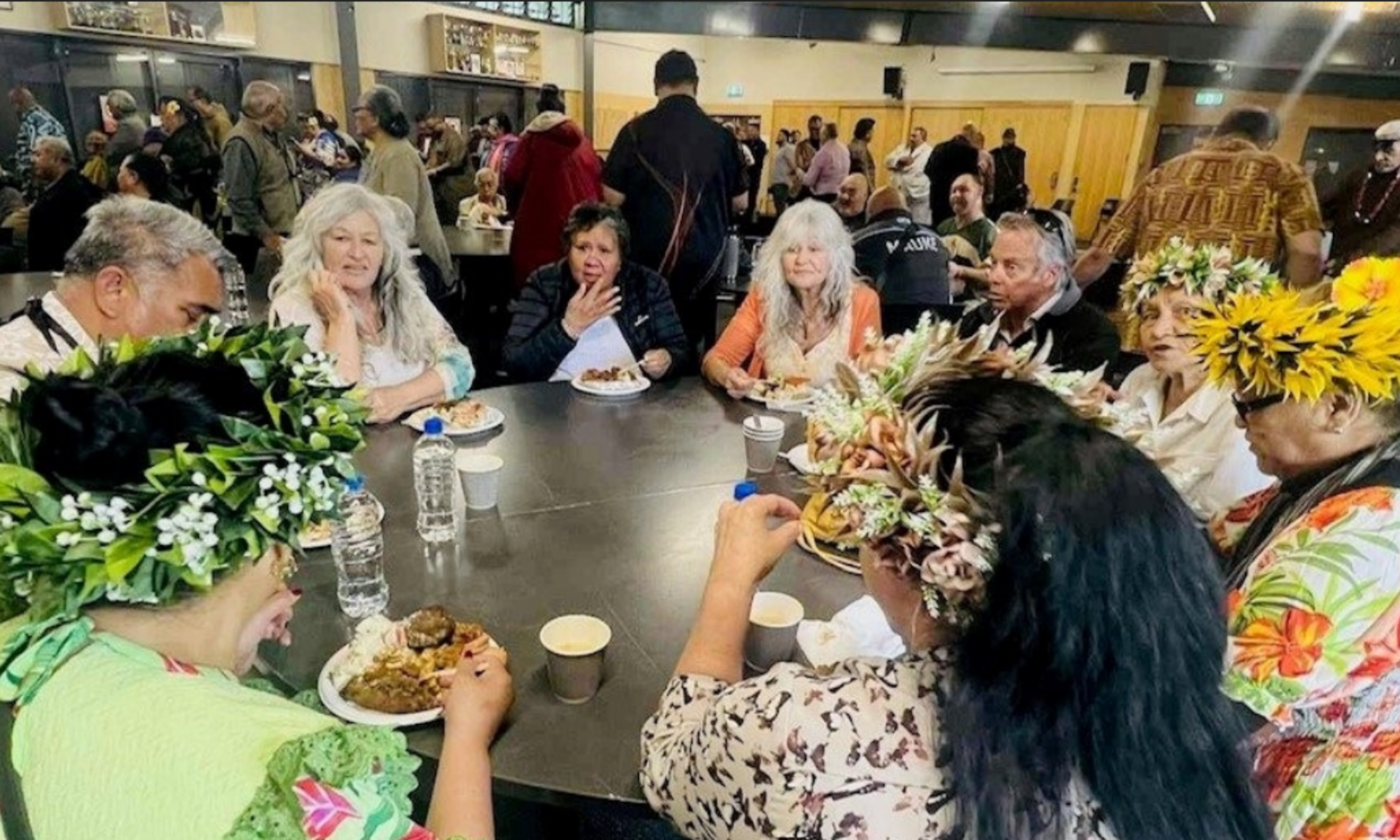

AUT immunologist Dr Chris Puli’uvea warns of rising measles risk in Aotearoa.
Photo/PMN Composite
Pacific health expert warns of rising measles risk as cases spread across New Zealand
AUT immunologist Dr Chris Puli’uvea warns low vaccination rates leave Pacific communities, especially children, vulnerable to the highly contagious virus.


Blacklisting squeeze hits Vanuatu families and businesses, the regulator VFSC warns

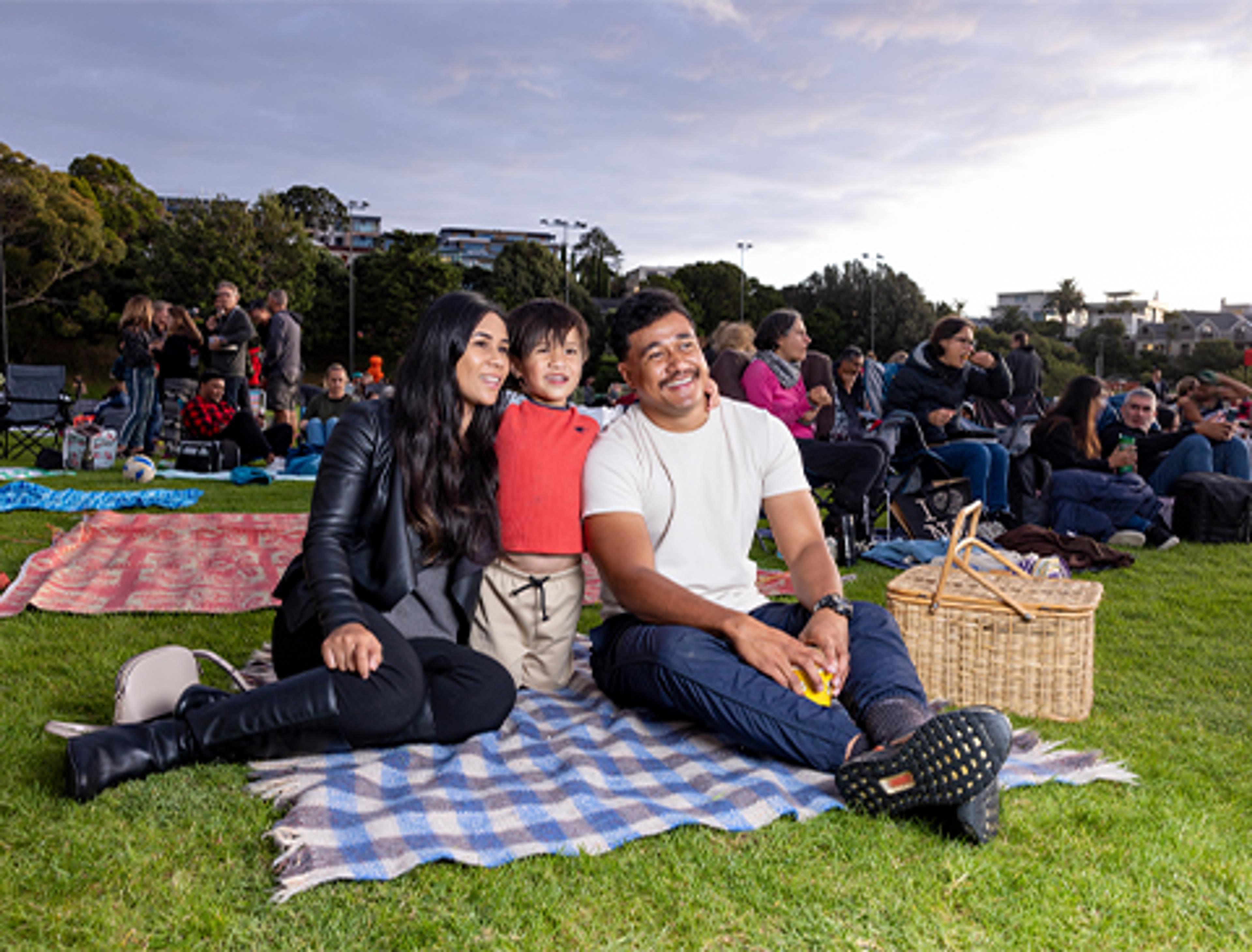
Pack your tissues: Free movies return with Tinā set for South Auckland

Manurewa charity requests $30,000 to keep Pacific seniors monthly gatherings

Blacklisting squeeze hits Vanuatu families and businesses, the regulator VFSC warns


Pack your tissues: Free movies return with Tinā set for South Auckland
Story updated at 6.20pm
A Pacific health expert is warning Pacific families to take urgent action as New Zealand faces an escalating national measles risk.
With confirmed cases now in Auckland, Northland, Manawatū, and Nelson, Dr Chris Puli’uvea, an immunology lecturer at Auckland University of Technology (AUT), says Pacific communities must not underestimate how contagious and dangerous the virus is, especially for children and those with weakened immune systems.
“Measles is a serious condition that's caused by the measles virus, and this is a condition that is really very debilitating to everybody,” Puli’uvea says.
“We've seen similar outbreaks of this disease in Sāmoa, and [they] had devastating impacts on children there.”
Earlier, Health New Zealand confirmed new measles cases this week - two children in Manawatū, one in Nelson, and one in Auckland, bringing the national total to four.
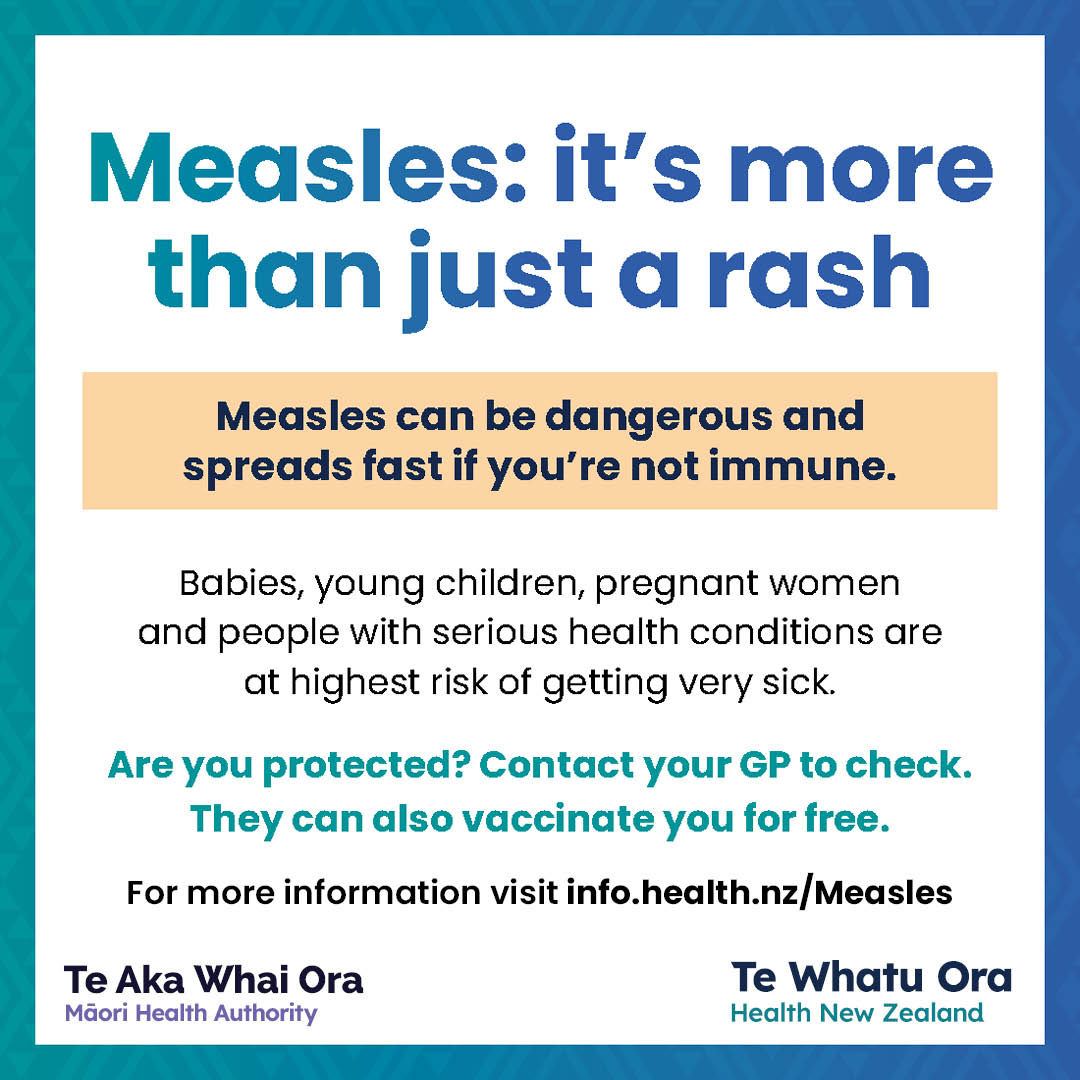
Health authorities warn it’s likely there will be more cases in the community which are yet to be reported. Photo/Health NZ
But at 5.02pm today, Health New Zealand confirmed two new cases, taking the total to six. Four of those cases are linked to a 2pm Bluebridge Ferry sailing on 3 October.
Contact tracing is underway across affected regions, including approximately 350 passengers on the affected sailing.
Public Health Medicine Specialist, national Public Health Service (NPHS), Dr Sharon Sime says with six cases of measles now confirmed, and given the links to the latest ferry exposure event, it's likely there will more cases in the community which are yet to be reported.
"That’s why we are asking people to continue to remain vigilant for measles symptoms, and with a long weekend ahead, to stay home if unwell and avoid travel, and seek healthcare advice,” she says.
Watch Dr Chris Puli'uvea's full interview below.
In Auckland, one of the key locations of interest is the Emergency Department and Clinical Decision Unit at Auckland City Hospital. Anyone who was there between 10.30am and 7.45pm on Friday, 17 October, is considered a casual contact and should monitor for symptoms until 7 November.
Anyone who travelled on the Bluebridge Ferry from Picton to Wellington on Friday, 3 October between 2pm and 5.30pm, should also watch for symptoms until 24 October.
There are also locations of interest in Nelson and Manawatū-Whanganui.
Speaking with William Terite on Pacific Mornings, Puli’uvea says measles spreads far faster than Covid-19 or the flu, warning that one infected person can transmit the virus to up to 18 others.
“The measles virus can stay airborne and survive for up to two hours in little droplets. So places that are highly congregated increase the risk of spreading this virus to other people.
“The best line of protection for us is to get fully vaccinated and getting two doses of the MMR vaccine."
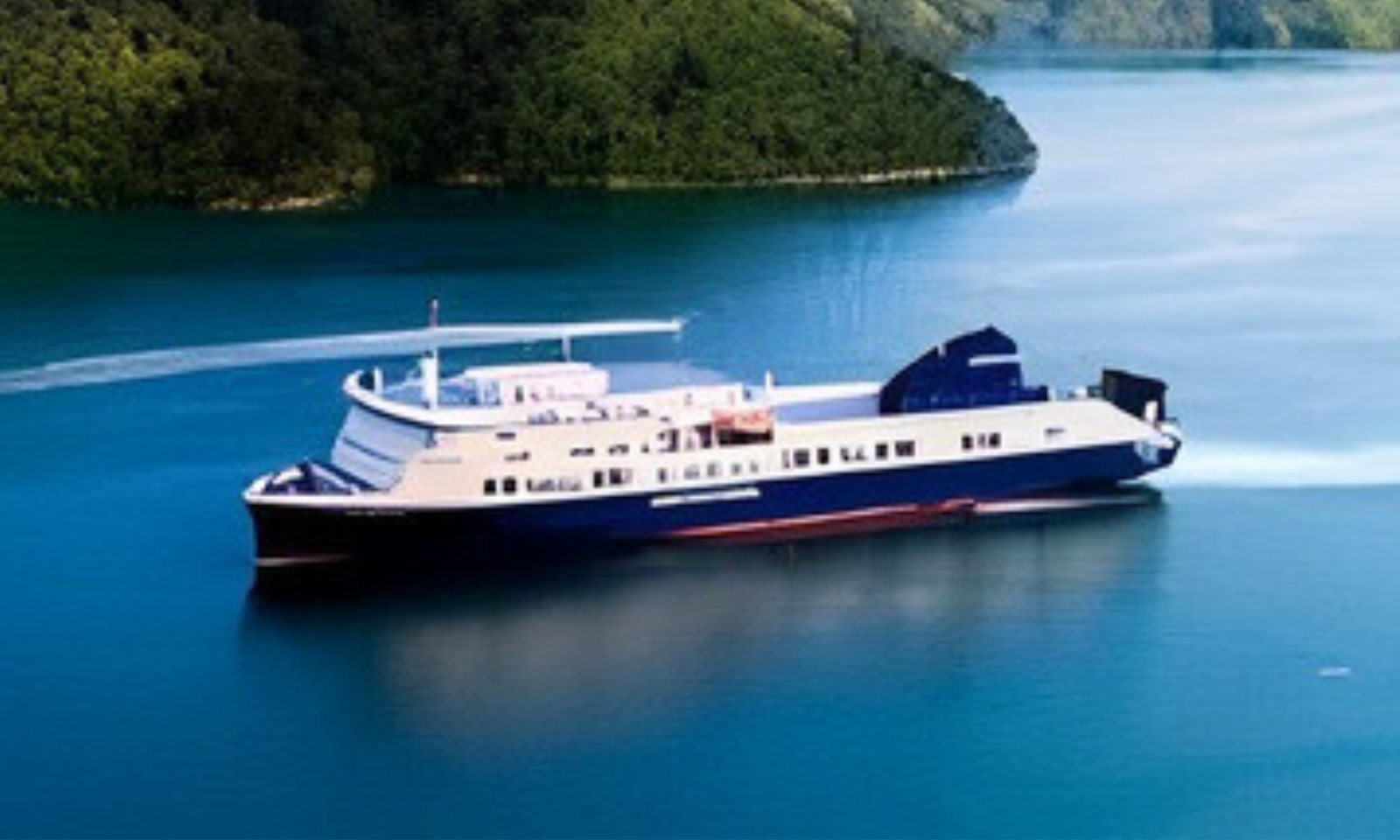
Those who travelled on the Bluebridge Ferry from Picton to Wellington on Friday 3 October should watch out for symptoms. Photo/Supplied.
He says it’s up to 99 per cent effective, protecting people from contracting and spreading the virus. But vaccination rates among Pacific peoples remain low.
“The last time I checked in December last year, we were sitting at 70 per cent, and we really need that to be at the 95 per cent level to be able to protect everyone around us.”
Te Whatu Ora/Health New Zealand says immunisation is free for anyone under 18, and for adults eligible for free healthcare. Vaccinations can be booked through GPs, pharmacies, or Pacific and Māori health providers at info.health.nz/bookavaccine.
Puli’uvea drew parallels with Sāmoa’s 2019 measles epidemic, which claimed more than 80 lives, mostly children under five.
“We saw a little bit of this [vaccine resistance] during Covid-19 and perhaps there might be some fatigue in the communities, but I encourage all our communities to come together.
He says Pacific churches, radio, and community organisations remain key to getting accurate information to families.
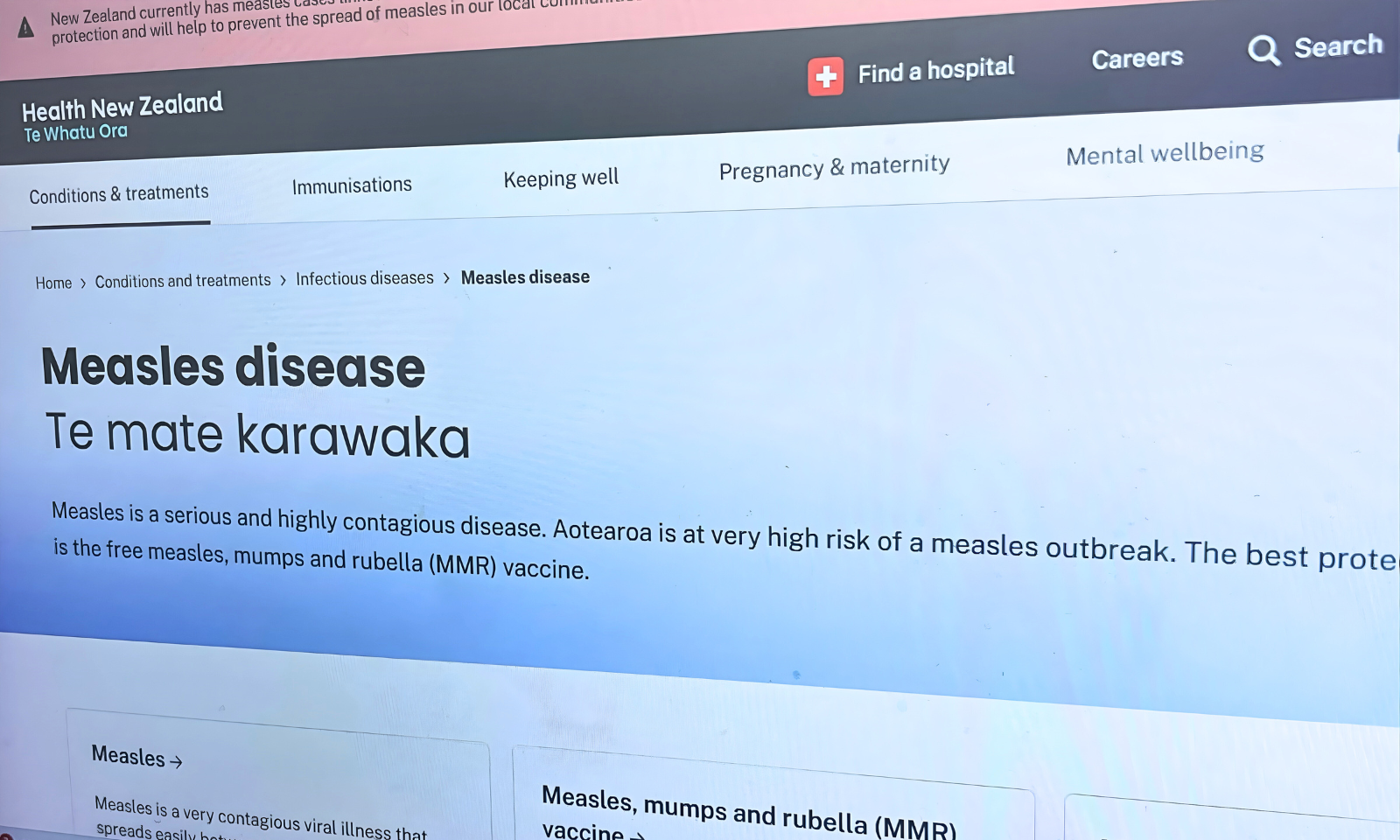
Health New Zealand’s website provides detailed guidance, including locations of interest and how to find out if you've been vaccinated. Photo/PMN News.
“One of the things that worries me is that we don't have restrictions currently in place to minimise that spread. For example, this Auckland case was in the hospital and in the hospital are people who are not well and have compromised immune systems. This could be spreading much wider than we think,” he says.
He also warns that upcoming public events, such as sports matches and concerts, could accelerate transmission.
Anyone unsure of their vaccination history is urged to contact their general practitioner (GP) or Pacific health provider. Immunisation records can usually be found in the National Immunisation Register, your Well Child Tamariki Ora book, or your GP medical record.
The Ministry of Health’s website provides detailed guidance, including how to locate your records to confirm whether you have had two MMR doses.
Anyone who suspects they have measles should call their doctor or Healthline on 0800 611 116 before visiting a clinic, to prevent further spread.
“If you're unsure about whether your whānau are protected against the measles, contact your family doctor to find out. The best thing to do is to protect our children, give them the best and the brightest, healthiest future, we can do that by getting them vaccinated,” Puli’uvea says.